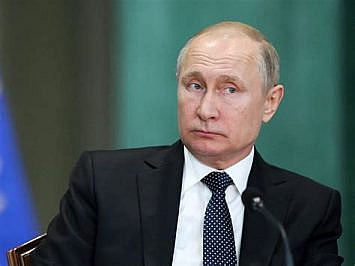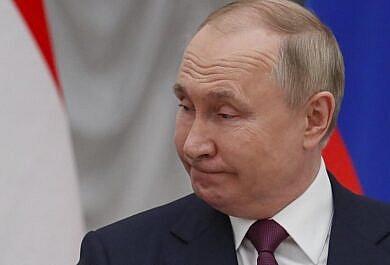This weekend’s rebellion by Wagner mercenaries brought the Russian mercenary force close to Moscow before the President of Belarus brokered a deal to defuse the crisis.
Summary
This weekend’s rebellion by Wagner mercenaries brought the Russian mercenary force close to Moscow before the President of Belarus brokered a deal to defuse the crisis. As Yevgeny Prigozhin, Wagner’s powerful leader, heads into exile, the brief revolt has shaken Vladimir Putin’s grip on power nearly a year and a half into Russia’s invasion of Ukraine.
- On Saturday, Prigozhin led Wagner fighters in revolt against the Russian defense forces and seized control of two major Russian cities, Rostov-on-Don and Voronezh, and were marching on Moscow before the short-lived mutiny was resolved and the mercenaries returned to their bases.
- Putin accused the Wagner troops of “treason” but dropped all charges under the terms of the deal brokered by Belarusian president Alexander Lukashenko. Prigozhin was last seen reparting Rostov-on-Don and is expected to begin exile in Belarus.
- Prigozhin’s revolt lasted for fewer than 24 hours. The stated reason for the mutiny was to overthrow what Prigozhin considered Russia’s ineffective military leaders, Defense Minister Sergei Shoigu and top general Valery Gerasimov.
- Prigozhin, Shoigu and Gerasimov are longtime rivals and Prigozhin blames Russian military leadership for supply shortages and friendly fire attacks on his troops.
- Secretary of State Antony Blinken said the rebellion exposed “cracks” in Putin’s hold on power and it has left the Russian leader weakened. Putin’s weakened state could affect the prospects of Ukraine’s counteroffensive and Russia’s ability to defend itself from attacks on its homeland.
![]()
- The New York Times published a timeline of the events that led up to Prigozhin’s rebellion and the twists and turns in his relationship with his benefactor-turned-rival Putin.
- CNN postulated that the events of this weekend could be “the beginning of the end for Putin.” Nick Paton Walsh listed the pieces of this story that still don’t make sense, including: “Was the advance north too easy? Did he accept entering the capital would leave his men vulnerable, even to a weak Russian military response? Were the regular military not joining him in large enough number? Did he believe a climbdown would only grow his support?”
- “Still, whatever Prigozhin was trying to accomplish with the short-lived rebellion, he probably did not intend to get exiled to Belarus, a dictatorship even more isolated than Russia, often called the North Korea of Europe, where he is now supposed to go following a deal to avoid arrest and prosecution,” wrote Mary Ilyushina for the Washington Post. “By the end of his ill-fated “march of justice” on Sunday, Prigozhin, the 62-year-old chieftain known as “Putin’s chef” for the state catering contracts that made him rich, was alive, smiling as he left the southern city of Rostov-on-Don, and not in jail…he had lived to fight another day.”
![]()
- The Wall Street Journal observed that “all the main players in Russia’s worst political crisis in decades stayed out of sight” on Sunday after the mutiny apparently ended. Yaroslav Trofimov detailed the “[k]ey unanswered questions include the future of Wagner’s 25,000 heavily armed troops, of the paramilitary group’s owner Yevgeny Prigozhin and of Russia’s military leadership, which failed to stop his rapid advance toward Moscow.” Prigozhin’s current location and the details of the Belarus-brokered agreement also remain unknown.
- Max Seddon argued the “failed putsch exposes deep flaws” and was “a huge humiliation” for Putin for the Financial Times.As of Sunday it appears Prigozhin and Wagner “have got off all but scot free after launching the first coup attempt in Russia for three decades.”
- National Review’s Jim Geragthy summarized the rebellion as “brutal maniac fails to depose other brutal maniac.” Geraghty noted “Yevgeniy Prigozhin meets most people’s definition of a crazed maniac. As a young man, he was sentenced to twelve years in prison for robbery, fraud, and involving minors in prostitution. After serving nine years, he turned a hot dog stand into the country’s largest catering company with government contracts. In 2019, his lucrative catering firm was accused of causing dysentery outbreaks at seven state-run day care catering and kindergartens in Moscow. He shrugged off a video of a “traitor” being executed by sledgehammer blows to the head, declaring, “a dog receives a dog’s death.””
© Dominic Moore, 2023






